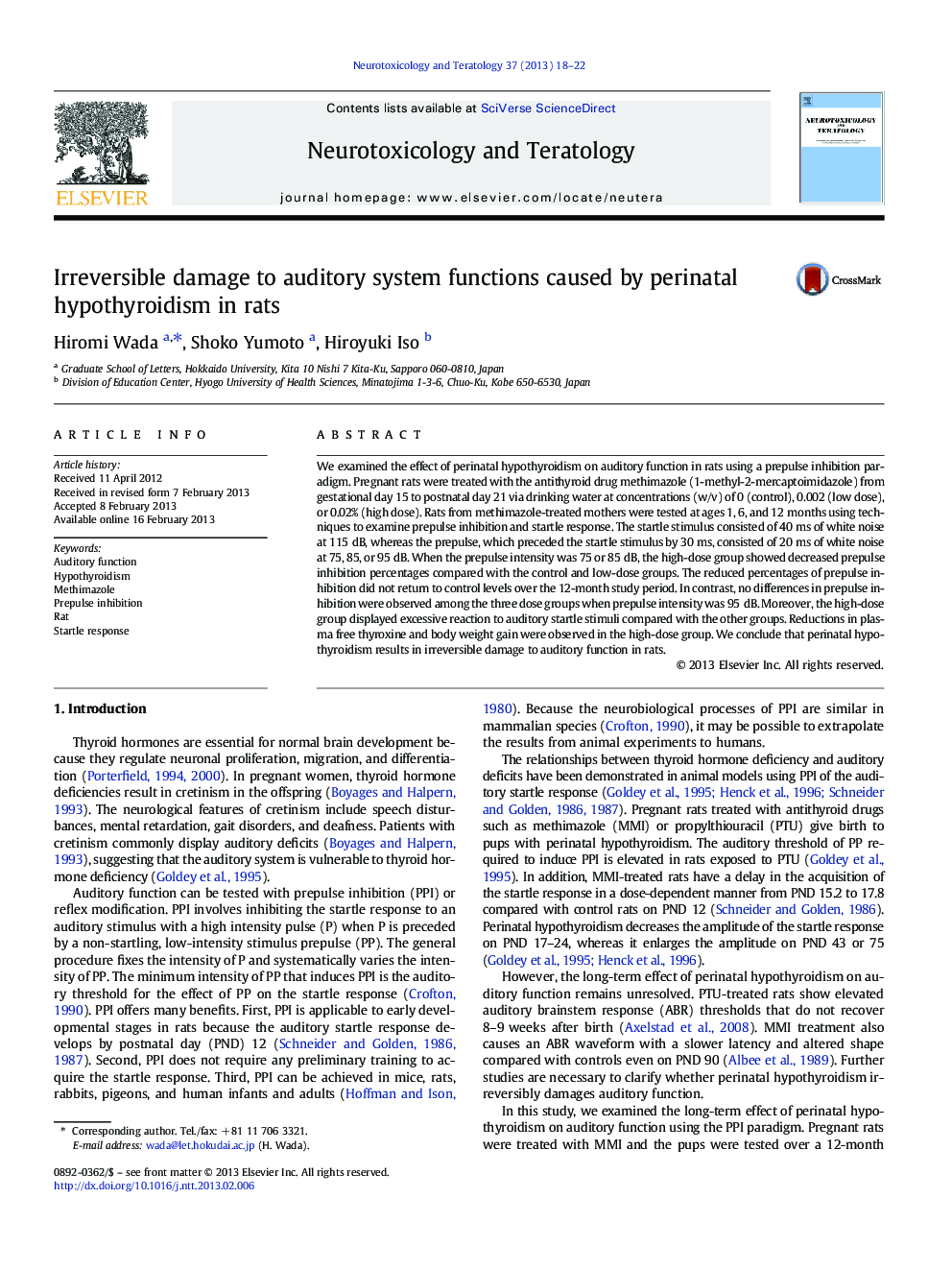| Article ID | Journal | Published Year | Pages | File Type |
|---|---|---|---|---|
| 2591152 | Neurotoxicology and Teratology | 2013 | 5 Pages |
We examined the effect of perinatal hypothyroidism on auditory function in rats using a prepulse inhibition paradigm. Pregnant rats were treated with the antithyroid drug methimazole (1-methyl-2-mercaptoimidazole) from gestational day 15 to postnatal day 21 via drinking water at concentrations (w/v) of 0 (control), 0.002 (low dose), or 0.02% (high dose). Rats from methimazole-treated mothers were tested at ages 1, 6, and 12 months using techniques to examine prepulse inhibition and startle response. The startle stimulus consisted of 40 ms of white noise at 115 dB, whereas the prepulse, which preceded the startle stimulus by 30 ms, consisted of 20 ms of white noise at 75, 85, or 95 dB. When the prepulse intensity was 75 or 85 dB, the high-dose group showed decreased prepulse inhibition percentages compared with the control and low-dose groups. The reduced percentages of prepulse inhibition did not return to control levels over the 12-month study period. In contrast, no differences in prepulse inhibition were observed among the three dose groups when prepulse intensity was 95 dB. Moreover, the high-dose group displayed excessive reaction to auditory startle stimuli compared with the other groups. Reductions in plasma free thyroxine and body weight gain were observed in the high-dose group. We conclude that perinatal hypothyroidism results in irreversible damage to auditory function in rats.
► The perinatal hypothyroid rats displayed decreased PPI percentages. ► The perinatal hypothyroid rats displayed increased startle response amplitudes. ► The perinatal hypothyroid rats exhibited decreased body weight gains. ► The perinatal hypothyroid rats exhibited reduced plasma FT4 levels without the changes of FT3 and TSH. ► Perinatal hypothyroidism caused irreversible damages to auditory system functions.
